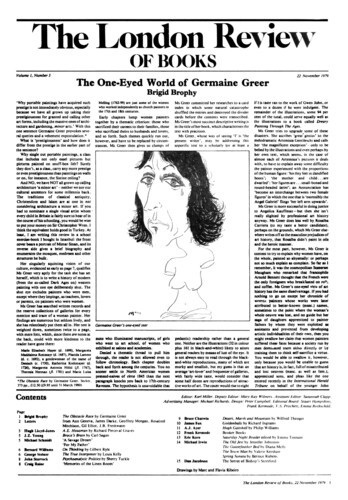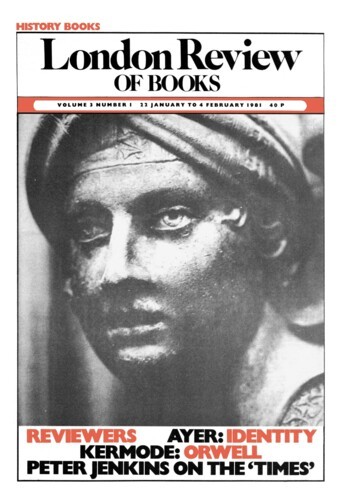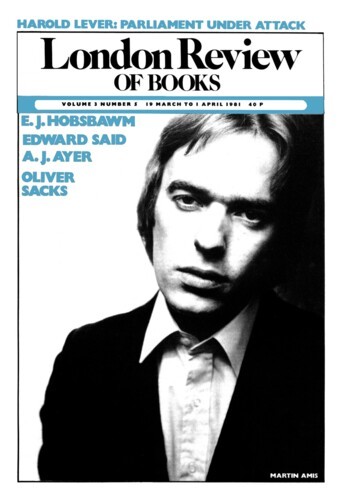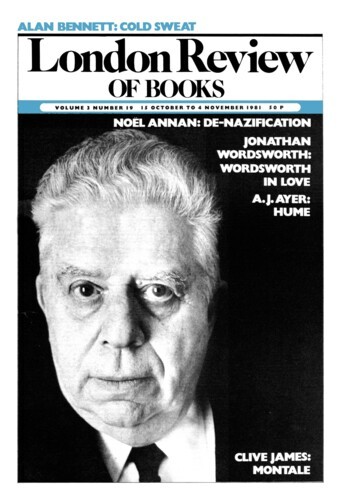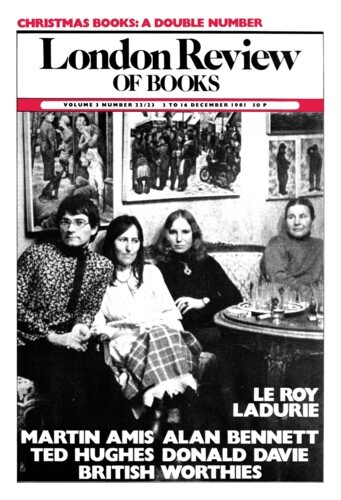Labour’s Lost Leader
A.J. Ayer, 22 November 1979
If only Hugh Gaitskell had not died when he did. If only he had led the Labour Party into the General Election of 1964. He had at last succeeded in imposing his ascendency over the party – an ascendency repeatedly challenged in the eight years he had led it, all the time in opposition. Would he not have become Prime Minister with a larger majority? Would not his government have dealt more successfully with the economic troubles of the Sixties? Might he not have retained power in 1970, and so saved us from the disastrous years of the Heath government? Might we not consequently have been spared our present discontents?
